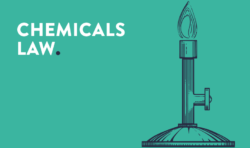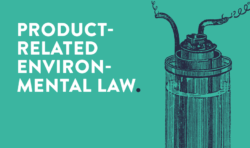For all four phthalates, the reason “endocrine disrupting properties (Art. 57 (f) REACH – human health)” and for DEHP the reason “endocrine disrupting properties (Art. 57 (f) REACH – environment)” have now also been added to the respective entry in Annex XIV to REACH.
Furthermore, specific exemptions from the authorization requirement have been deleted, i.e. for the previously exempted uses, authorization requirements will have to be observed in the future.
- For the use of DEHP, BBP, DBP in the primary packaging of medicinal products covered by Regulation (EC) No. 726/2004, Directive 2001/82/EC and/or Directive 2001/83/EC, applications for authorization must be submitted by 14.06.2023. Without authorization or without a timely application for authorization, the corresponding use is prohibited as of 14.12.2024 (cf. Art. 56 (1) REACH).
In this respect, the Commission, after re-examining the exemption, has come to the conclusion that the conditions of Art. 58 (2) REACH are not fulfilled. According to this article, certain uses or categories of uses may be exempted from the authorization requirement provided that the risk is adequately controlled on the basis of existing specific Community legislation prescribing minimum requirements for the protection of human health or the environment when the substance is used. Against the background of the further concretizations of the European Court of Justice on the requirements in this regard (see ECJ, judgment of July 13, 2017, Case C-651/15 P), the underlying regulations lack sufficiently specific requirements with regard to the protection of human health or the environment in the use of DEHP, BBP and DBP in primary packaging of medicinal products. However, without such specific requirements, the conditions for maintaining the exemption from the authorization requirement are precisely lacking.
- For DEHP, the exemption for use in food contact materials within the scope of Regulation (EC) No 1935/2004 has also been removed. Here, too, applications for authorization must be submitted by 14.06.2023, and the ban on use under Art. 56 (1) REACH will take effect from 14.12.2024. Similarly, for the use of the substance in medical devices falling within the scope of Directives 90/385/EEC, 93/42/EEC (these Directives are mentioned in Regulation (EU) 2021/2045, although they have been repealed by Art. 122 of Regulation (EU) 2017/745; thus, references to the two old Directives shall be understood as references to the new Regulation) and 98/79/EC, applications for authorization must be submitted by 27.11.2023, and use without authorization will be prohibited from 27.05.2025. The deletion essentially follows from the inclusion of the additional hazards to the environment in the entry for DEHP in Annex XIV to REACH. For food contact materials, the prerequisites according to Art. 56 (5) REACH have thus been dropped; with regard to medical devices, the authorization requirement follows against the background of Art. 60 (2) subparagraph 2 REACH. Both regulations provide for deviations from the authorization requirement only to the extent that risks to human health are at issue. The extension of the entry to include environmental hazards now simultaneously triggers the authorization requirement.
- For all four phthalates, the use in mixtures with a concentration of at least 0.1 and less than 0.3 % by mass of the respective phthalate will also be subject to authorization in the future. In this case, applications for authorization must also be submitted by 14.06.2023, and the ban on use under Art. 56 (1) REACH will apply from December 14.12.2024. As a result of the inclusion of the intrinsic properties mentioned in Art. 57(f) REACH, the concentration limit applicable to these substances in mixtures for the purposes of the exemption under Art. 56 (6) REACH is 0.1% by mass. The adaptation by Regulation (EU) 2021/2045 clarifies this.
The transitional periods for the uses of DEHP, BBP, DBP and DIBP, which are no longer exempted from the authorization requirement, appear to be rather tight. The users of the substances affected in this respect should therefore start with the preparation of possible applications for authorization at an early stage. In any case, affected downstream users should ensure that for uses to be maintained, an upstream actor in the supply chain obtains the corresponding authorization, thus opening up the possibility for use without an own authorization according to Art. 56 (2) REACH in conjunction with Art. 66 REACH.
Goods already produced before the relevant cut-off dates of 14.12.2024 or 27.05.2025 using the substances subject to authorization, remain in principle marketable. In this respect, the authorization requirement does not apply to the placing on the market or use of the products manufactured from these substances. However, further requirements under REACH or other regulatory requirements must of course be observed separately.
Do you have any questions about this news, or would you like to discuss the news with the author? Please contact: Martin Ahlhaus






